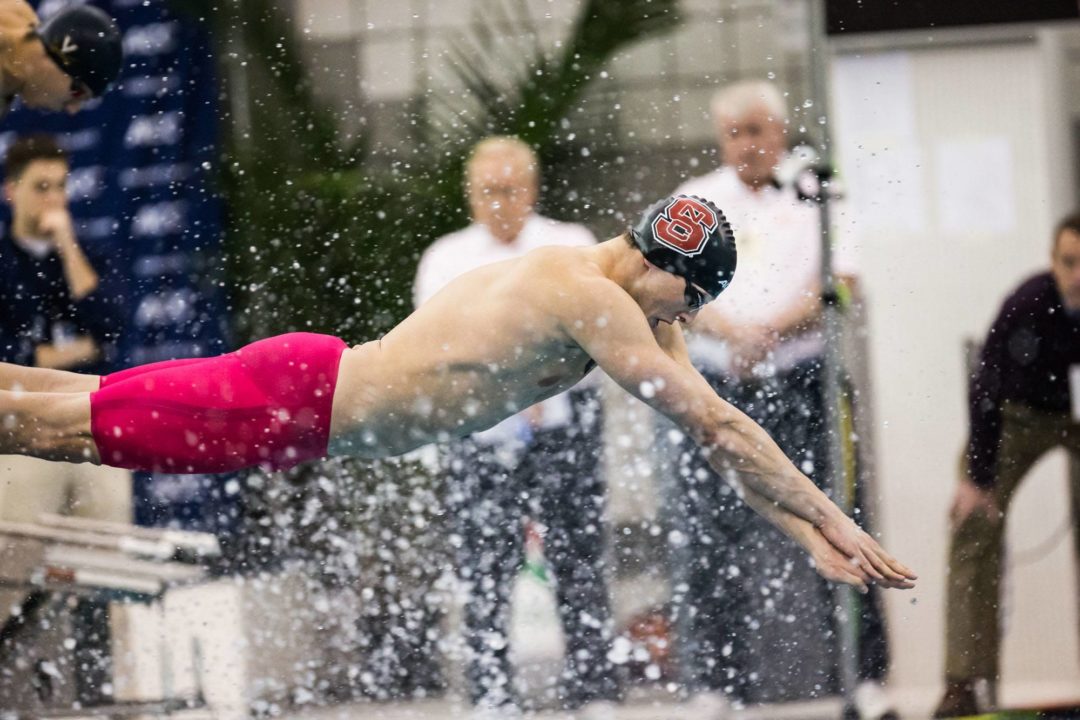Once you’ve made it to your senior year, choosing the college team where you will spend the next four years of your career is a daunting process. Over 500 four-year colleges in the United States offer swimming, and programs can vary widely. The good news is that if you have a true passion for the sport, there is a college out there where you can feed your passion while still obtaining an education that will allow you to accomplish your career goals. Here are some questions to help you decide whether a college is the right choice.
1. How will swimming on this team affect your academics?
Being an athlete always requires some sacrifice, but you want to make sure that the sacrifices you make end up being the right ones. Will you have to take classes over the summer or stay in school an extra semester as a result of your involvement on the team? If you want to study abroad, will the coach allow it? Is swimming on that team going to edge out any possibility of an internship in your subject area? Some coaches emphasize that their athletes are students first and athletes second. Others look at swimming as your full-time job, while academics are secondary. It’s important to know what you want when it comes to commitment to the team.
2. Can you see yourself getting along with the team members?
The types of people that different teams attract are usually a good show of the team’s values. While many of your closest friends initially may be in your recruiting class, you will probably end up building close bonds with the older athletes who are already on the team. Those students will be your mentors and the ones who will show you the ropes. Later on, they may end up being your roommates or best friends. If you can’t see yourself fitting in with the current team members, then you may have problems when practices start in the fall.
3. What do the team members think about their coach and how the program is run?
Talking with a range of coaches is a great way to discover exactly what type of program you are looking for. However, it is just as important to speak with the athletes on every team to see whether the coach does a good job of carrying out the promises that he or she makes to the recruits. While a coach is always the best source to help you learn the team’s overall goals, swimmers are often a better source to learn exactly how those goals and values are implemented in practice.
4. Do swimmers on the team tend to improve over their four years?
Swimmers on college swim teams come from a large range of backgrounds. Some have only ever swam for their high school, some have worked their way up from swimming 25’s in the eight and under group, and others spent their high school career training over 20 hours a week with USA teams. Regardless of individual swimmers’ backgrounds, it is important to note whether the coaches are able to take a group of diverse athletes and construct a program where each swimmer has a chance to succeed.
5. Where do you fit in on the team speed-wise?
Speed isn’t everything, but you need to figure out where you want to be in comparison to the other athletes on your team. Is it worth it to you to be an NCAA Division I athlete if you’re not going to be on the traveling team? Do you want to be somewhere that you will be able to participate on “A” relays and fight for conference championships? Do you need to be somewhere where you are in the middle of the pack and have a lot of room to grow? There are college teams out there which represent wide range of ability levels, even within the different interscholastic divisions: NCAA Division I, NCAA Division II, NCAA Division III, NAIA, and NJCAA.
6.What will your scholarship package look like?
As nice as it would be to say that money shouldn’t matter in choosing a college, it often ends up being a big factor. At many colleges, the biggest portion of your scholarship will come from academic and need-based considerations, but the money that you get from swimming can help ease your (or your parents’) burden. It is important to note that NCAA Division I, NCAA Division II, NAIA, and NJCAA schools can all offer athletic scholarships, while NCAA Division III schools cannot. It also is worth figuring out whether your athletic scholarship is frozen at a set amount or if it will be renegotiated every year based on your performance.
7. Is this college somewhere where you can flourish and start working your way toward your long-term (post-swimming) goals?
This is the single most important question to ask yourself when deciding to sign with a college swim team. You are choosing a college with a swim team rather than a swim team that just happens to be at a college. You need to make sure that you could see yourself at the school even if swimming weren’t a part of the picture. Every swimming career has an expiration date, and you don’t want to find yourself at the end of yours with fast times and no career prospects. It is important for you to build relationships outside the pool, whether it is through an on-campus club, an internship, a job, or your academic department. You don’t have know exactly what you want to do with the rest of your life; in fact, at eighteen, you probably shouldn’t. But, you should sit in on a class, talk to your admissions officer, and meet a professor in order to decide whether the institution as a whole is in line with your academic values.
